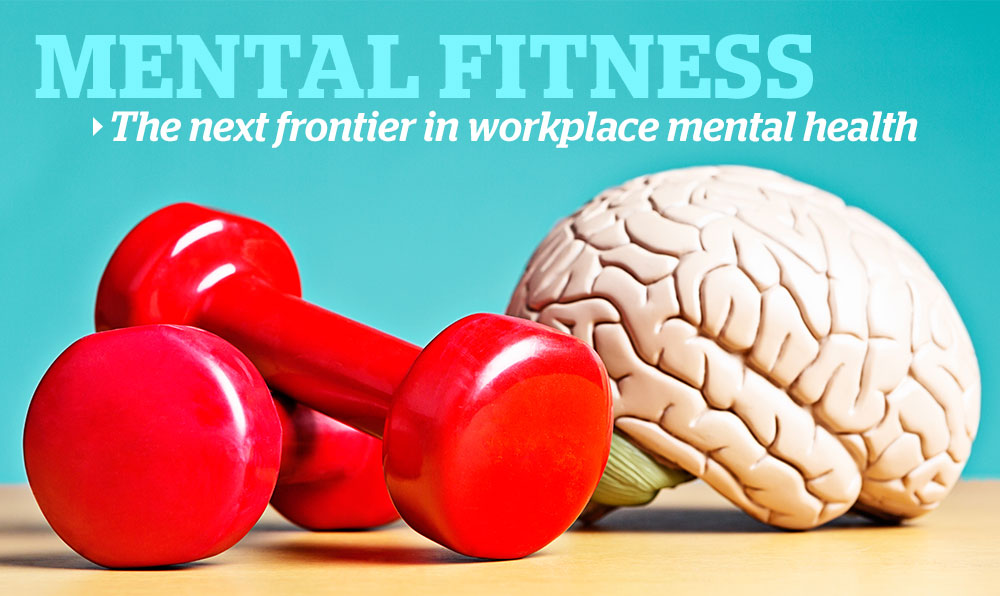

Columns/Blogs
Features
Mental Health
Why accurate relationship currency accounting matters
By Bill Howatt

EDITOR’S NOTE: ‘Mental Fitness: The next frontier in workplace mental health’ is a weekly series, in partnership with Dr. Bill Howatt of Howatt HR Consulting in Ottawa. This series takes a deeper look at mental fitness — an approach to prevent mental harm and promote mental health.
“When it comes to emotional bank accounts, it is wise to never assume; keep checking in to ensure the balance is in the black.” — Dr. Bill Howatt
Most of us have read a book that had at least one key message that has stuck with us. One book that had a profound impact on me is Steven Covey’s Seven Habits of Highly Effective People.
In the past month, I have been reflecting on what Covey described as sharpening the saw — taking an area of your life to focus on and improve. I am focusing more on monitoring the emotional bank accounts in my key personal and professional relationships.
Too many take relationships for granted. Monitoring your key relationship emotional bank accounts can help you adjust your behaviours before you put a relationship at risk.
In my latest book, The Cure for Loneliness, I talk about the different kinds of social connections we have that predict what I call our “social connections charge.” The higher our social connection charge across all relationships, the more social connections will promote and support our mental health.
COVID collateral damage: Why mental fitness matters now, more than ever
Why this microskill matters
After four decades of research, the Gottman Institute found that most couples’ main arguments were not about money, sex, parenting, or in-laws.
They occurred because of emotional connections gaps that they were unable to articulate.
Couples who had loving relationships intentionally made more positive deposits than withdrawals. Like a traditional bank account, a zero balance is a sign of trouble and a negative balance means the relationship is in danger.
Key concepts of an emotional bank account
Emotional deposit: an action the other person perceives adds value to their day.
A dear friend and I were chatting recently about emotional deposits. My friend shared a short story that makes the point of the value of keeping an accurate account of the value of emotional deposits.
One day after doing something kind for his wife, she sent a dozen red roses to his workplace. Now, why accounting and providing feedback on the emotional deposit value are important, he recalls going home and telling his wife how grateful he was that she thought of him. Then he said, “Would you think I am a jerk if I said in the future, instead of flowers, could you send me ruby shorts?”
Because they had good communications, she laughed and said, “Of course.” Only the receiver can define the value and it is important to not assume but to discover and learn.
Withdrawal: an action another person perceives as negative and takes from the emotional bank.
What can be challenging is the person may not always share why they perceive a withdrawal (for example: forgot to plan for their birthday). Often, we will know by the person’s response or by the interaction, such as conflict or disagreement.
Accurate accounting: each person keeps their own balance sheet.
Never assume you know what the bottom line is. The only way to really know is to talk about it. Be mindful that for each deposit, you get one credit. But for every withdrawal, you could lose five, 10 or 20 credits. The key lesson is withdrawals drain the bank much faster than deposits fill it.
Tips for building your emotional bank account
Accurate accounting of emotional banks can help build, develop, and sustain meaningful, long-term, healthy relationships.
Keep in mind that what one person values may not be the same as what you value. If we really care, we focus on making deposits the other person values more than we think they should.
Seek to understand the other’s emotional deposit currency. It is helpful in all relationships to discover what the other person values as deposits.
In a partner relationship, be aware of your partner’s top three by asking and creating space where it is safe for both to share. Then it is up to each person if they are willing to act and make emotional deposits.
Do your accounting: To accurately know a relationship balance, check in regularly; never assume.
Humans, at times being irrational and emotional, will occasionally react and make decisions based on a withdrawal without considering all the deposits.
Be aware and honest with yourself. Pay attention to your emotions when you make a deposit. Do you feel good? If not, your emotional bank may be low.
In a healthy relationship, the most important factor is not the time couples spend together; it is the emotional connection they experience.
For example, if you tell someone you love them, and they do not say it back, this may help fill their account, but does nothing for you.
Sometimes what can help is to talk about each other’s emotional bank account and what each would like, to ensure both feel their accounts are in the black.
 Dr. Bill Howatt is the Ottawa-based president of Howatt HR Consulting and the former Chief of Research and Workforce Productivity at The Conference Board of Canada.
Dr. Bill Howatt is the Ottawa-based president of Howatt HR Consulting and the former Chief of Research and Workforce Productivity at The Conference Board of Canada.
If there is a particular microskill or topic you would like to see Dr. Howatt write on that supports employees’ mental health in the workplace, please send your request to Talent Canada editor Marcel Vander Wier.
Print this page